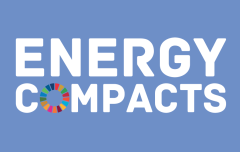Green Value Chains in South Africa: Unlocking Investment and International Collaboration
Developing domestic renewable energy manufacturing is becoming a key policy priority across the Global South. Alongside energy transition and green growth strategies, this shift represents an opportunity to reduce import dependency, build local industries by leveraging existing capacities and resources, and create jobs across the entire value chain. Achieving these goals requires a comprehensive industrial policy framework, incorporating long-term strategic planning, supply- and demand-side incentives, and interventions focused on education, training, trade, technology transfer, logistics, and complementary infrastructure development.
South Africa has pioneered efforts to build domestic renewable energy manufacturing capabilities deploying a range of industrial policy tools alongside its renewable energy procurement programme to attract global OEMs and build a local ecosystem of suppliers and service providers. More recently, the South African Renewable Energy Masterplan (SAREM) is being developed to reinvigorate the country’s renewable energy manufacturing sector with a focus on green industrialisation and job creation, leveraging existing production capacities, natural resources and regional cooperation opportunities. The country’s nearly USD 100 billion Just Energy Transition Investment Plan (JETP) for 2023-2027 further strengthens these efforts, aimed at fostering a resilient, inclusive, and sustainable economy.
Capitalizing on the full range of opportunities offered by green industrialization will require South Africa to attract and mobilize substantial domestic and international investment in the renewable energy manufacturing sector, while addressing a range of demand- and supply-side bottlenecks. It is well-positioned to pursue regional supply chains that leverage countries’ complementary production capacities and mineral resources to unlock greater value on the continent through upstream linkages.
South Africa’s drive to bolster its green value chains has been supported by a combination of public and private sector initiatives. InvestSA, South Africa’s leading investment promotion agency under the Department of Trade, Industry, and Competition, plays a pivotal role in attracting, generating, and retaining investments in the country. By partnering with South Africa’s nine regions, InvestSA aligns investment needs with the country's diverse business opportunities.
Organized in partnership with InvestSA and the DTIC, this fourth webinar in the Africa Renewable Energy Manufacturing Initiative South-South Virtual Policy Dialogue Series will deep-dive into South Africa as an investment destination for renewable energy manufacturing showcasing opportunities, policy and institutional landscape and competitiveness assessments. The webinar will convene representatives from government, industry, financing institutions and development partners to identify key actions needed to translate South Africa’s visions into investments, including on infrastructure development, trade policy and incentive design, investment mobilization and demand creation policies. The webinar will also showcase the opportunity for South Africa’s upcoming G20 Presidency to place centre-stage the green industrialization agenda and present a pathway for the Global South looking to concurrently advance climate action, energy transition and industrialization.
Guiding questions
- What are the key opportunities in South Africa's renewable energy and e-mobility manufacturing sector and how is the government looking to attract investments?
- How competitive is local manufacturing in South Africa and what measures can government take to facilitate the development of local and regional supply chains?
- What are the main asks from the international and local private sector in terms of policy support, incentives, and infrastructure to accelerate renewable energy manufacturing?
- What specific financial mechanisms or incentives could be developed to advance South Africa’s renewable energy manufacturing sector? How can climate financing and just transition programmes effectively support such efforts?
- How can South Africa’s renewable energy value chains be better integrated into regional and global supply chains, and what trade policies and financial tools are necessary to enable this?
- How can South Africa’s G20 Presidency catalyze investments, partnerships and cooperation necessary for green value chain development in the Global South?
Agenda
12.30 – 12.45 High-level opening remarks
Stefano Marguccio, Deputy CEO, Sustainable Energy for All
Yunus Hoosen, Acting Deputy Director General, Investment & Spatial Industrial Development Branch, Department of Trade, Industry & Competition, South Africa (Invited)
12.45 – 12.55 Scene-Setting presentation
Annelize van der Merwe, Director: Investment Promotion (Green Economy), Department of Trade, Industry & Competition, South Africa
12.55 – 14.00 Moderated panel discussion
Moderator: Gaylor Montmasson-Clair, Director & Co-Founder, Southern Transitions
Panellists:
Andrew McPherson, Investor & Business Advisor, Balancell
Annelize van der Merwe, Director: Investment Promotion (Green Economy), Department of Trade, Industry Competition, South Africa
Beth Dealtry, Head: Policy and Regulatory Affairs, NAACAM
Hans Van Toor, Strategy and Innovation Manager, ROAM
Kugan Thaver, Head: Machinery, Equipment and Electronics, The Industrial Development Corporation of South Africa
Tabi Tabi, Founder & CEO, Granville Energy
Audience Q&A


